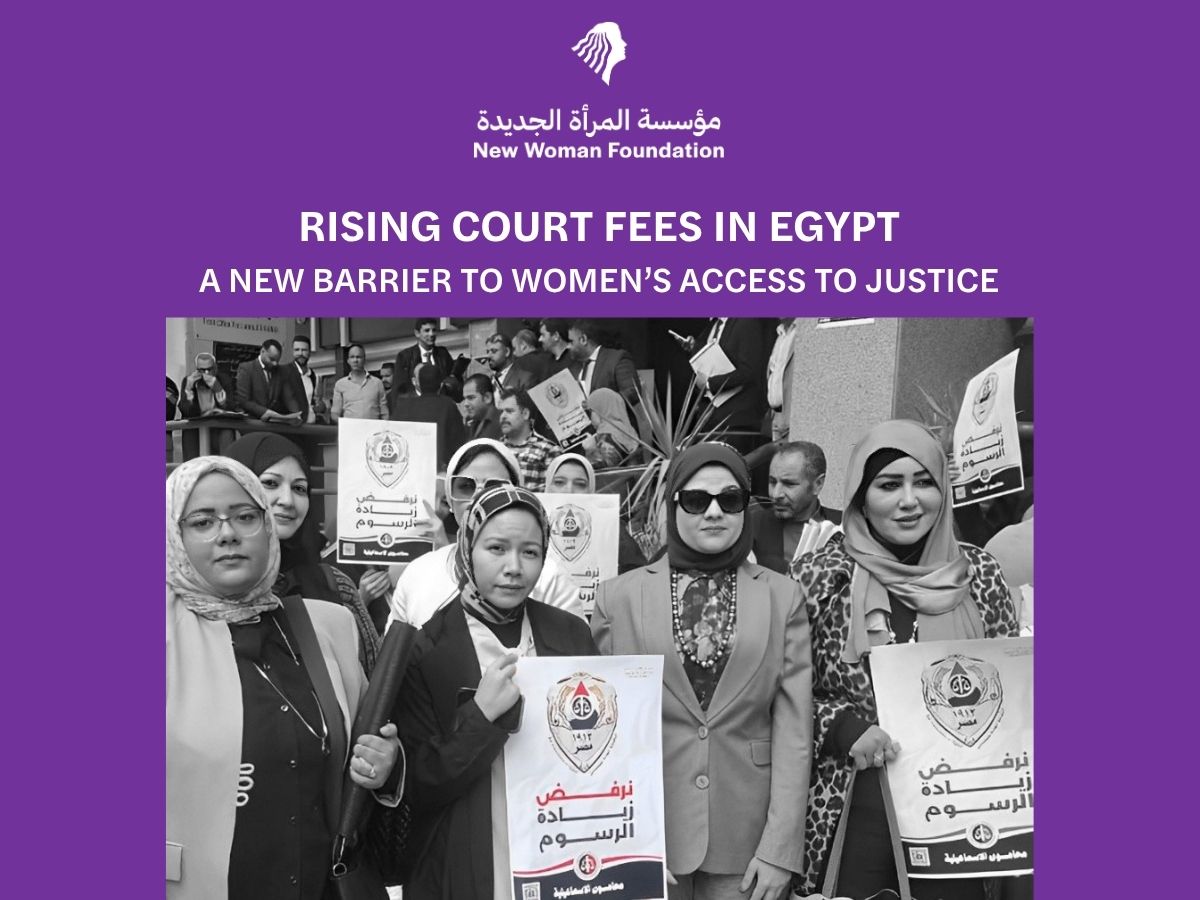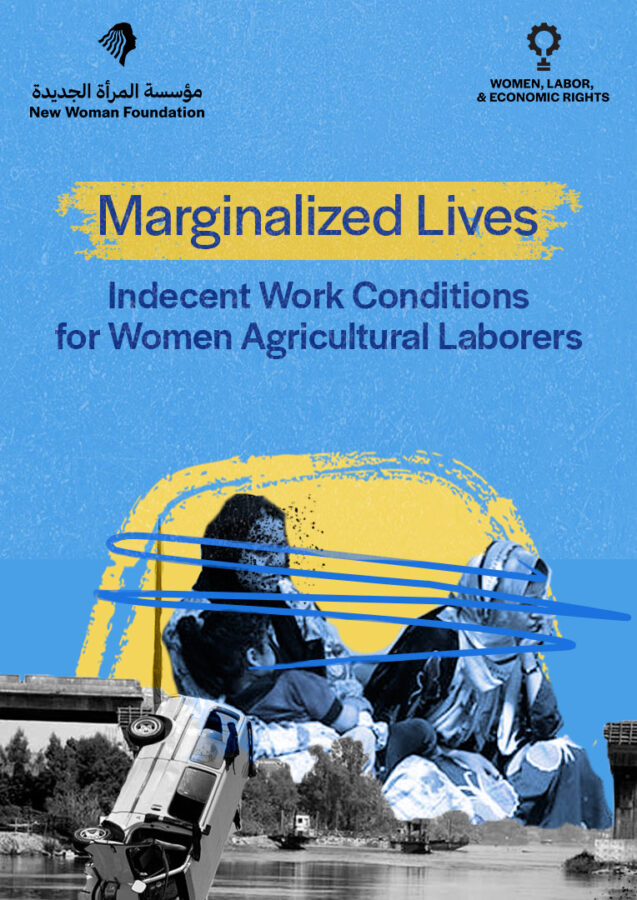- Contact Us
- 0020233382706
- nwrc@nwrcegypt.org
The Diverse Roles and Aspirations of Middle Eastern Women
It is a common assumption in the U.S. that Muslim women are oppressed, and that their religion forces them to cover their bodies and even their faces, denies them education and the right to work, and makes them subservient to men. While it is certainly true that Muslim women, like women in most cultures, struggle against various forms of inequality and discrimination, it is important to distinguish carefully between the role of women as dictated by Islam and the role of woman as dictated by local cultural and legal restrictions on women’s autonomy.
In the Middle East today, women must negotiate a complex system of restrictions and opportunities created by the intersection of (1) how Islam is practiced locally; (2) cultural practices, traditions and expectations related to gender; (3) current political dynamics, in which women’s roles may become part of the social platform for one or more groups competing for power, and (4) the legal and civil structures and intent of the state. The nation-state may reinforce what are seen as traditional restrictions on women based on a conservative interpretation of religion, as in Saudi Arabia or Iran, or it may contradict traditional interpretations of Islam and forcefully encourage women to become what it considers to be more modern, as Tunisian and Turkish governments did through much of the twentieth century.
In many contemporary Middle Eastern societies, women have been prominent participants in movements for political and social reform. Women were important actors in both the 2009 Green Movement in Iran and the Arab uprisings occurring since December 2010. However, in the aftermath of those uprisings, a number of issues have arisen in several countries that have challenged women particularly, including the rise of sexual harassment and violence, a reduction in the number of women elected to political office, and a variety of challenges to women’s legal rights and protections. Women and their male supporters continue to try to mobilize across class, ethnic and educational differences to try to address these problems from a variety of perspectives.
The Colonial Experience and Gender
The position of women was frequently used by the colonial powers as a reason to interfere with the political and social institutions of colonized societies. While this was based to a certain extent on sincere do-goodery, it was also a political tool used to undermine the legitimacy of local traditions and replace them with colonial institutions. One can see an explicit example of this in the practice of the British governor general of Egypt, Lord Cromer. At home he was a member of the Anti-Suffrage League, but he decried the oppression of Egyptian women in order to denigrate Egyptian society and to legitimize British control, while restricting real educational reforms for Egyptian women.
For many in the Middle East who remember the bitter colonial experience, the West’s interest in “reforming” the position of women is therefore suspect. When the push for advancing women’s liberation comes from outside, it may be seen as part of an assumption that Western ways are superior and perhaps as a strategy to delegitimize local culture or the leadership of the modern nation-states of the region. On the other hand, the position of women can also be used by those within Middle Eastern societies as a touchstone for their unease about the encroachment of the commercialized and sexualized culture of the West. These factors can make it very difficult for women in the region to advocate for legal changes or more social tolerance for an expansion of women’s roles, since reformers may be seen as tools or dupes of the West.
Still, many regimes in the contemporary Middle East have sought to advance the status of women in law and in society as a marker of their own national progress and in order to take advantage of the full human capital of the country. In Turkey and Iran, Kemal Ataturk and the Shah, respectively, argued for adoption of secular Western ideas about the roles of women, in particular arguing (and even legislating) that women should remove their headscarves in order to participate fully in the modern world. The Arab nationalist and socialist regimes of Syria and Iraq brought in many reforms for women in the second half of the 20th century–while at the same time restricting the political freedoms of the society as a whole.
Negotiating the Islamic Tradition
Women in Middle Eastern societies who want to expand their rights and roles may, at one and the same time, have to defend themselves against the accusation of being too Western, fight against ultra-conservative interpretations of Islam and restrictive local cultural traditions, and disentangle themselves from being co-opted by an oppressive nation-state. One strategy being adopted by many women in the Middle East to advocate against the various restrictive social and legal practices of their own societies is to argue that their impulse to reform the role and status of women comes not from the West but from the Islamic tradition itself. They look to the early reformist spirit of the Quran and some hadith, rather than to the legal accretions of later centuries, to argue that Islam mandates that women have equal status in law and society, if in some areas different roles.
Women in the Middle East today who are struggling to better their own positions thus have an arsenal of tools to wield in opposing the laws, states and traditions that confine them. These may be secular arguments about human rights, equality and democracy and/or religious arguments about what they see as the inherent gender justice of Islam. In opposition to the 2009 election results in Iran, mainly elite women in Tehran demonstrated in the thousands – often using loose green headscarves as a symbol of support for their favored candidate. In Turkey, secular feminists argue freely with women who resist the state’s restrictions on the practice of religion, including the ban on headscarves in public schools and in public office. Even in the conservative Gulf states, perceptions of gender and their legal reflections are changing. In Kuwait, four women were elected to Parliament in 2009; in Qatar, Oman and Bahrain, too, women have won the right to vote. However, steps forward are not always permanent as the political environment changes – in 2012, elections in Kuwait returned no women parliamentarians.
In every state in the region, women are acting as social entrepreneurs, setting up organizations to combat domestic violence, oppose government malfeasance, increase educational opportunities for girls, insist on observance of human rights, and advocate for change across a wide variety of issues. Women are also using both established and new forms of artistic expression to throw light on the issues they consider most important, to critique their societies, and to point the way to their own visions of a more equitable life.




